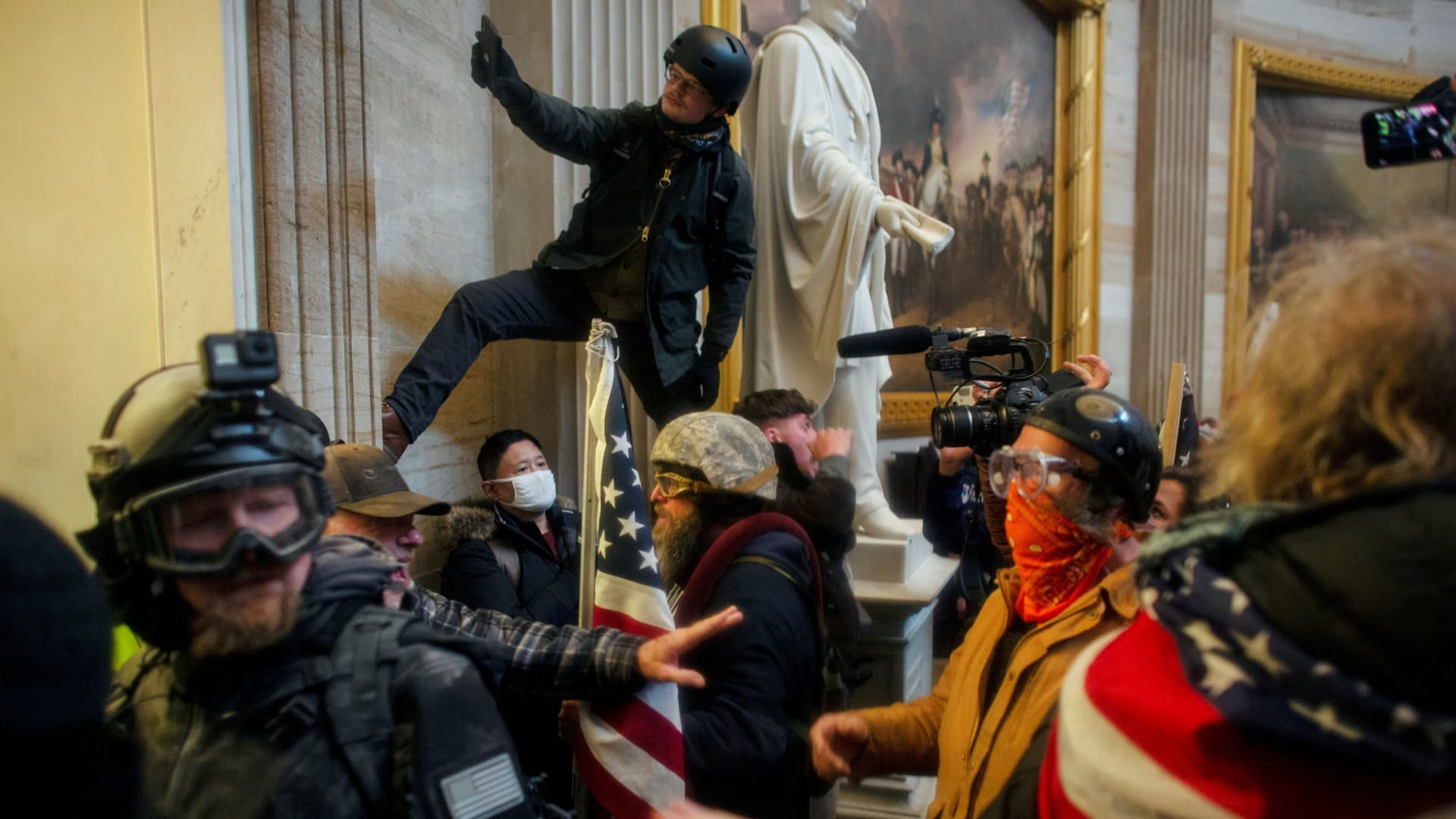
- Former President Donald Trump was issued a subpoena Friday by the House select committee investigating the Jan. 6 riot at the U.S. Capitol.
- The panel on Oct. 13 said it would subpoena Trump, whose supporters stormed the Capitol as a joint session of Congress met to confirm the election of President Joe Biden.
- Committee Chairman Rep. Bennie Thompson, D-Miss., and Vice Chairwoman Liz Cheney, R-Wyo., in a letter to Trump cited what they called his central role in a deliberate effort to reverse his loss in the 2020 presidential election and to remain in power.
Former President Donald Trump was issued a subpoena Friday by the House select committee investigating the Jan. 6 riot at the U.S. Capitol.
The committee, which voted unanimously on the move, is demanding Trump's testimony under oath next month as well as records relevant to the probe into the attack, which the panel noted came after weeks of him denying losing the 2020 election to President Joe Biden.
Get top local stories in Connecticut delivered to you every morning. >Sign up for NBC Connecticut's News Headlines newsletter.
The panel had said on Oct. 13 that it would subpoena Trump, whose supporters stormed the Capitol on Jan. 6, 2021, as a joint session of Congress met to confirm Biden's victory.
"We recognize that a subpoena to a former President is a significant and historic action," the panel's leaders wrote Trump in a letter Friday.
"We do not take this action lightly."
Money Report
Committee Chairman Rep. Bennie Thompson, D-Miss., and Vice Chairwoman Liz Cheney, R-Wyo., in the letter cited what they called Trump's central role in a deliberate, "multi-part effort" to reverse his loss in the 2020 presidential election and to remain in power.
The subpoena says that Trump would be deposed on Nov. 14, after the midterm elections.
It is not clear whether Trump will comply with the subpoena.
"As with any similar matter, we will review and analyze it, and will respond as appropriate to this unprecedented action," said David A. Warrington, a partner at Dhillon Law Group, the firm representing Trump in the subpoena matter. In a statement sent by a Trump spokesman to NBC News, Warrington also accused the committee of "flouting norms" by publicly releasing the subpoena.
The records being sought by the House committee pursuant to the subpoena are due Nov. 4.
The records include documentation of telephone calls, text messages, or communications sent through the encrypted messaging app Signal, as well as photos, videos and handwritten notes relevant to the scope of the probe.

The panel specifically asked for communications to, and memorandums from, 13 Trump allies and fellow deniers of Biden's victory, among them former New York City Mayor Rudy Giuliani, Republican gadfly Roger Stone, retired Army Lt. General Michael Flynn, and former White House aide Stephen Bannon.
Bannon was sentenced to four months in jail earlier Friday for refusing to comply with subpoenas from the same committee. He remains free pending appeal.
In their letter to Trump, committee leaders Thompson and Cheney accused him of "maliciously" making false allegations of election fraud, "attempting to corrupt the Department of Justice" to endorse those claims, pressuring state officials to change election results, and overseeing efforts to submit false electors to the Electoral College.
The letter also noted that he had pressured his vice president, Mike Pence, to refuse to count Electoral College votes during the joint session of Congress.
"As demonstrated in our hearings, we have assembled overwhelming evidence, including from dozens of your former appointees and staff, that you personally orchestrated and oversaw a multi-part effort to overturn the 2020 presidential election and to obstruct the peaceful transition of power," the letter said.
"You were at the center of the first and only effort by any U.S. President to overturn an election and obstruct the peaceful transition of power, ultimately culminating in a bloody attack on our own Capitol and on the Congress itself," the letter said.
The committee's leaders pointed to the fact that seven presidents had testified to Congress after leaving office, most recently Gerald Ford, a Republican.
And at least two presidents, Ford and Abraham Lincoln, testified before Congress while serving in the White House, the letter noted.






